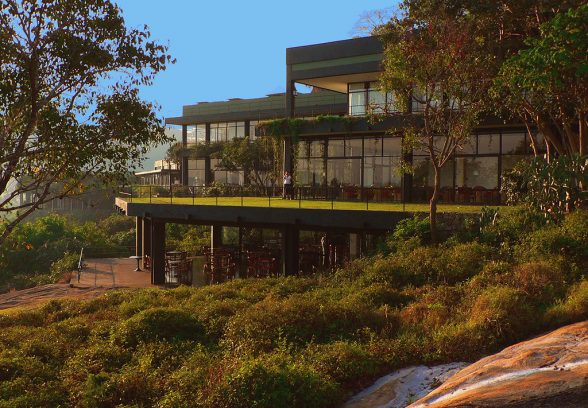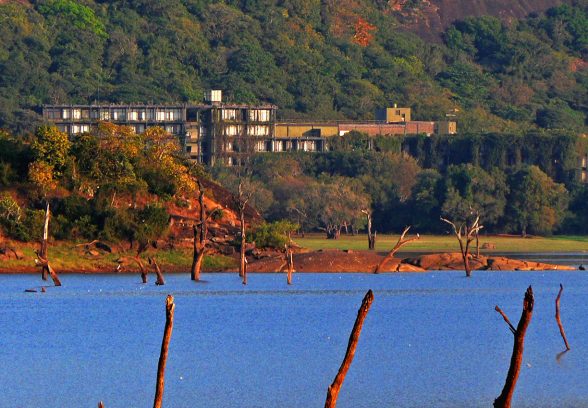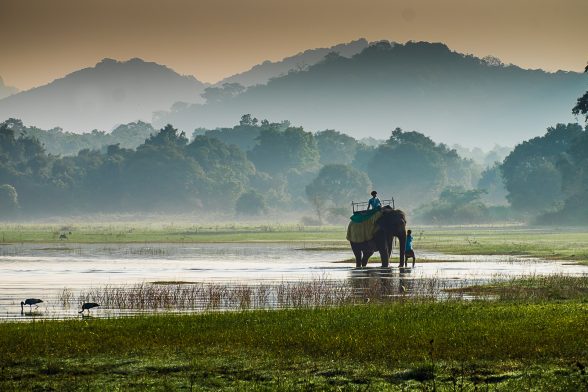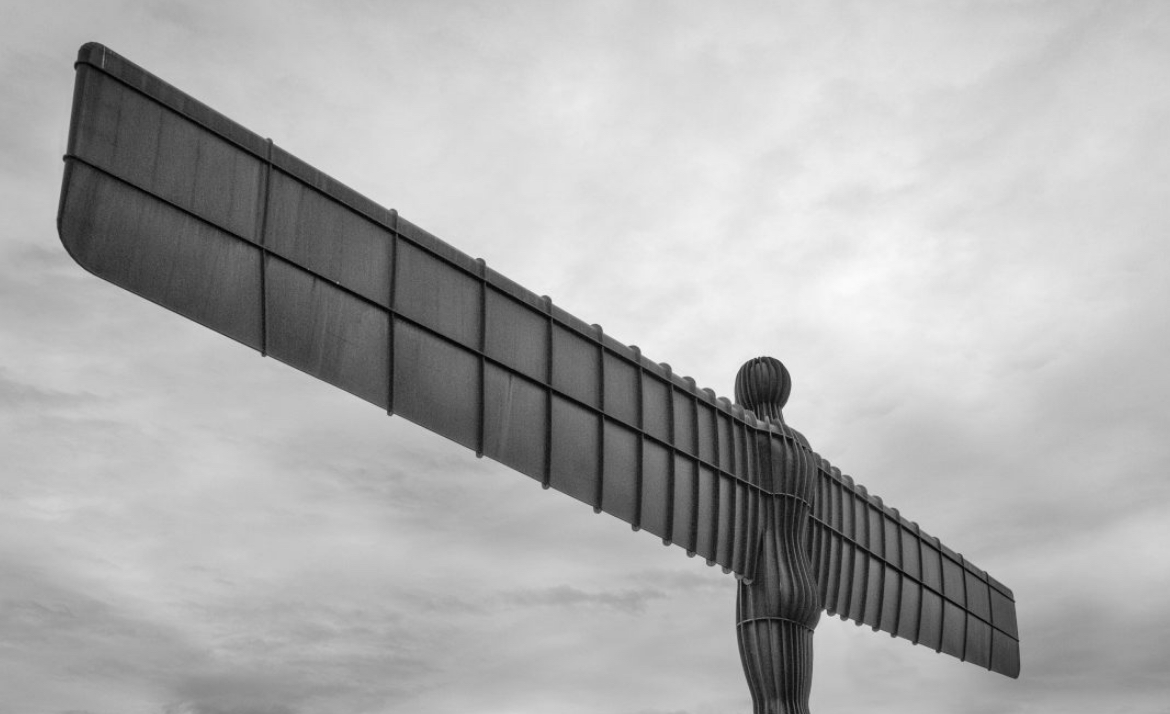This website uses cookies
This website uses cookies to enable it to function properly and to analyse how the website is used. Please click 'Close' to accept and continue using the website.




Kandalama Hotel, near Dambulla, Sri Lanka
Sleeps: various
1992
Architect: Geoffrey Bawa
It’s wonderful setting means this is not a building to look at, but a building to look out of – like a monumental hide or a giant belvedere.
Recommended by: Wendy Akers, C20 Society volunteer.
“What I loved most about the hotel was its amazing setting, nestling at the foot of Mt Ereulagala and Mt Dikkandahena and overlooking the beautiful and ancient Kandalama reservoir. There is an abundance of wildlife: monkeys on the balconies, enormous Land Monitor lizards under the sunbeds and a magnificent array of birdlife. Apparently when Bawa was asked to build the hotel, the site was to be in Sir Lanka’s ‘Cultural Triangle’ near the foot of Sigiriya Rock. Instead he proposed a site near Dambulla offering magnificent distant views of the Rock. It is a deluxe hotel so it was a treat to stay there, albeit only for three nights, as I was travelling around the island, visiting a number of other Bawa buildings – his home in Colombo (a highlight) his former offices in Colombo (now a fashionable restaurant where I dined well, twice), the Seema Malaka Temple, the new Parliament building and the Gardens at Lunuganga where he is buried.”

Photo: Wendy Akers
Background to the building
The hotel is a staggering 1km from end to end, and rises up seven floors, yet appears to be a perfectly natural extension of the mountainside into which it is built.
After travelling along narrow dusty tracks, our car swept up a steep ramp to the hotel entrance that is fashioned like the mouth of a cave. A corridor cut through the rock leads to an open lounge where we got our first glimpse of the magnificent views as we sipped a welcome cocktail, overlooking the first of the hotel’s three swimming pools. As if on a ship, the entrance is on the fifth level. Above it, on the top deck, are the restaurant and main lounges. Perhaps the most impressive feature is the grand but austere indoor-outdoor staircase that links all the rooms and facilities. The roofs are flat, and, like the open concrete facades, support a dense screen of foliage and hide a tribe of monkeys. As a result the building disappears into the surrounding jungle. Its architecture is stark and understated, as befits a building less to be looked at, than to be looked out of – like some monumental hide or belvedere.
Geoffrey Bawa explored modernism and its cultural implications and created a unique, recognisable style of design which had a lasting impact on architects across the world. Well versed in Modernist theory, Bawa was one of the original proponents of Tropical Modernism, a design movement in which sensitivity for local context combines with the form-making principles of modernism.

Become a C20 member today and help save our modern design heritage.
Comments